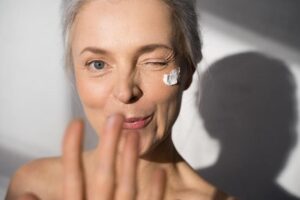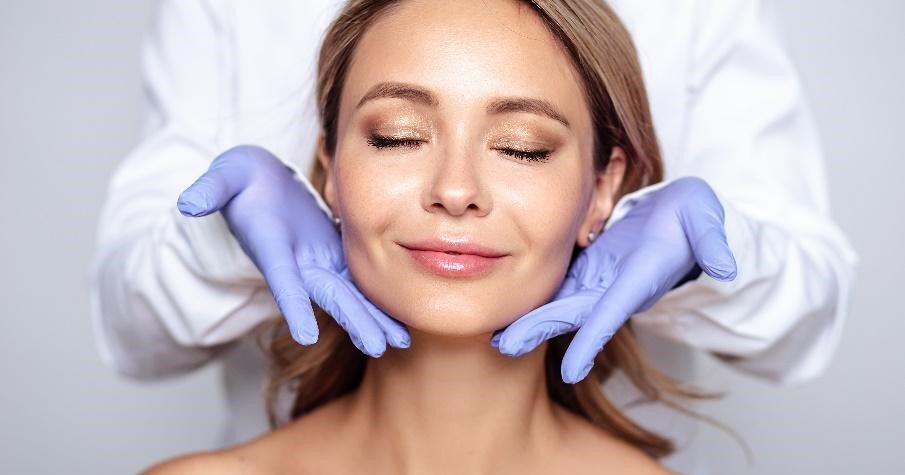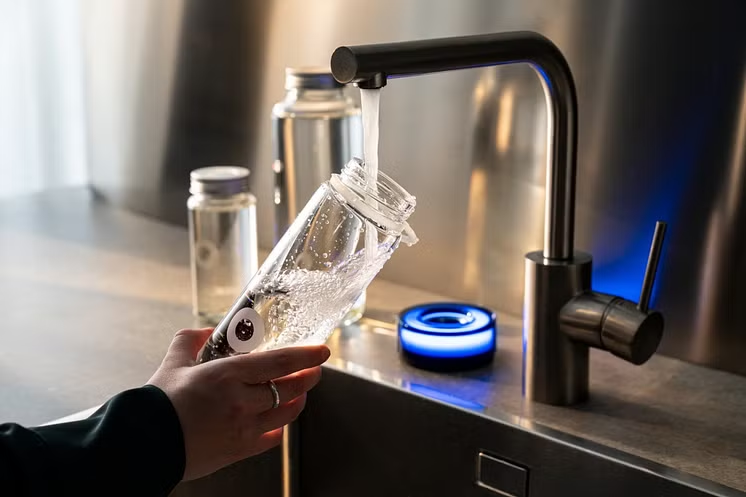 While 85% of women experience menopause symptoms such as hot flashes and mood swings, the effect menopause has on women’s complexion is something not often talked about enough. Lesser-known skin issues can crop up, leaving many women wondering why their once-reliable skincare routines suddenly stop working.
While 85% of women experience menopause symptoms such as hot flashes and mood swings, the effect menopause has on women’s complexion is something not often talked about enough. Lesser-known skin issues can crop up, leaving many women wondering why their once-reliable skincare routines suddenly stop working.
According to Rebecca Elsdon, advanced skin specialist and owner of the re/skin clinic, “It’s important to shift the conversation from ‘fighting’ ageing to embracing skin health at every stage. After all, ageing is a privilege, and the focus should be on feeling confident in one’s skin, regardless of age.”
In celebration of World Menopause Day (October 18th) Rebecca partnered with global beauty and wellness brand Fresha, to discuss three skin issues you may not know are linked to menopause – and how to tackle them with the right skincare regime.
-
Sensitive to bruising and infections
As oestrogen levels drop, so does the skin’s ability to repair itself. This means your skin may become more prone to infections and super sensitive to the environment. Suddenly, redness, irritation, and even conditions like rosacea can appear out of nowhere, with delayed wound healing also affecting the skin.
What to Do: Strengthen your skin’s defences with antioxidant-rich products. Look for formulas with vitamin C and E to help your skin stand up to environmental stressors.
-
Visible dark spots
Hormonal shifts often make hyperpigmentation, like melasma or sunspots, more visible. These stubborn spots can linger and feel impossible to shift.
What to Do: Brightening ingredients like tranexamic acid, niacinamide, and vitamin C can help even out your skin tone. For tougher pigmentation, professional treatments like chemical peels or laser therapy might be the answer!
-
Yeast overgrowth
A drop in oestrogen can mess with your skin’s natural microbiome, leading to yeast infections, especially in areas like skin folds. It’s an issue many women face but don’t often talk about.
What to Do: Keep the area clean, use breathable fabrics like cotton, and if necessary, apply an anti-fungal cream. For extra protection, probiotic skincare can help restore your skin’s balance.
Building the best skincare routine for post-menopausal skin
 Now that we’ve covered the common concerns, here’s the routine your skin will thank you for:
Now that we’ve covered the common concerns, here’s the routine your skin will thank you for:
- Gentle Cleansing: Choose a mild, hydrating cleanser that doesn’t strip your skin of its natural oils. Look for ingredients like chamomile and glycerin for a soothing touch.
- Vitamin C for Day, Retinol for Night: Vitamin C brightens and fights against premature ageing. At night, introduce retinoids to stimulate collagen and smooth fine lines. If retinoids feel too harsh, Bakuchiol offers a gentler alternative.
- Hydration, Hydration, Hydration: Layer up the moisture! Start with a hyaluronic acid serum and follow with a rich moisturiser packed with ceramides, fatty acids, and peptides to lock in hydration and improve elasticity.
- SPF – No Excuses!: Daily SPF is non-negotiable, especially as menopausal skin is more susceptible to UV damage. Choose a broad-spectrum sunscreen (SPF 30 or higher) with zinc oxide or titanium dioxide for sensitive skin.
- Boost Collagen: Peptide-infused products can help signal the skin to produce more collagen, while growth factor serums aid in skin regeneration.
- Professional Treatments: For deeper skin rejuvenation, treatments like microneedling, laser therapy, or non-invasive skin tightening can work wonders. Regular hydrating facials or light chemical peels can also keep your skin in top shape.
While menopause can cause several pressures, it’s also important to recognise these are all normal changes. Rebecca Eldson states “While aging gracefully is often celebrated, the pressure for women to maintain youthful skin can reinforce unrealistic beauty standards. The effects of menopause, such as dryness, sagging, and wrinkles, are natural and inevitable!”
For those professional treatments and maintenance appointments, be sure to check out qualified skin specialists near you, via Fresha.













